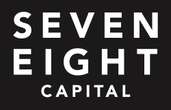American higher education is in crisis.
This year, some two dozen colleges shut their doors and more are forecast to close in 2025, CNBC reports. According to new research from the Federal Reserve Bank of Philadelphia, as many as 80 colleges and universities are expected to close in the next five years.
That working paper from the Fed based its analysis on a massive dataset of college and university information from 2002 to 2023, which predicted future closures through a model using machine learning. It found that of the 100 institutions it assessed, 84 closed within a three-year period. Researchers then predicted the likelihood of future closures, factoring in a 15% decline in enrollment between 2025 and 2029.
Many colleges are struggling financially as enrollment falls, the result of skyrocketing tuition costs and students questioning if the degree is even worth the hefty price tag.
Bucking the trend are more elite institutions, such as the so-called Ivy-Plus schools (i.e. “Ivy equivalents,” Stanford, MIT, Duke, University of Chicago, and others), as well as the Ivy Leagues themselves, all of which are experiencing record-breaking increases in applications. (As of November 1, overall applications rose 10% for the 2024-25 application season, compared to a year earlier, according to the latest data from the Common Application.)
We can’t blame it all on COVID
A report from Best Colleges found that 40 colleges have closed since 2020, the year the pandemic began. (It also found another 32 public or private nonprofit schools merged or announced mergers with other universities.)
The report said that the COVID-19 pandemic forced campuses to temporarily shut down to help contain the virus, and then some were unable to reopen due to financial strains.
However, the findings showed that many of the biggest issues now facing higher education (dwindling enrollment, rising tuition, doubts about the value of a degree) started long before the pandemic, and American colleges have been closing for the past decade. It’s possible that the pandemic simply accelerated the issue.
As the tuition cost to attend some colleges and universities nears six figures per year, students, particularly those from low- and moderate-income families, are increasingly choosing to attend less-expensive public universities or four-year trade schools, according to CNBC.
But now, several elite and Ivy League schools are stepping up their financial aid programs, even providing full tuition to many of the “most promising” students, which is working to encourage students to apply to the high-sticker-priced schools.
Eight schools, including New York University, Tufts, Brown, Yale, and Washington University in St. Louis, each cost more than $90,000 for the 2024-25 academic year, according to the Princeton Review’s Best Colleges list, as reported by CNBC.
A paper from the National Bureau of Economic Research found that children from families in the top 1% are more than twice as likely to attend an Ivy-Plus college as those from middle-class families with comparable SAT/ACT scores.








No comments